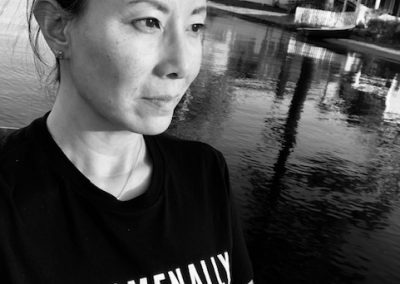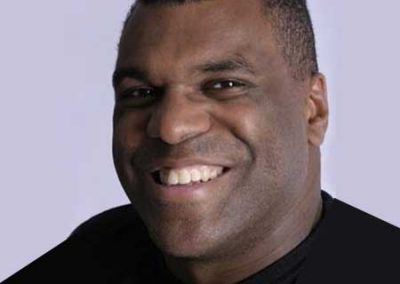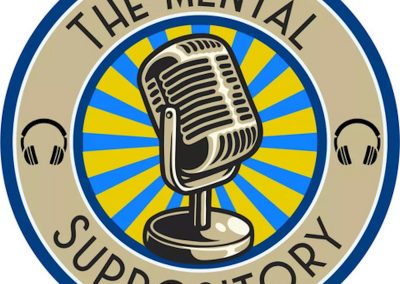Wabi Sabi Notebook II
photo courtesy of Scott M. Graves

Joshua Michael Stewart is a poet and musician who has had poems published in the Massachusetts Review, Salamander, Plainsongs, Brilliant Corners, and many others.
His books are, Break Every String, (Hedgerow Books, 2016) and, The Bastard Children of Dharma Bums, (Human Error Publishing, 2020).
His albums, Three Meditations, and Ghost in the Room, can be found on Apple Music, Spotify, Amazon, and many other platforms. Visit his web site at www.joshuamichaelstewart.com, or better yet, interact with him at www.facebook.com/joshua.m.stewart.526/.
For this column Joshua will explore poetry, music, and Buddhism, and how they all intersect with each other. He will delve into assorted poetic forms and he will specifically highlight contemporary poets from the New England area, and the poets associated with classical Japanese and Chinese poetry.
THE WABI-SABI NOTEBOOK (PART TWO)
Here is the second installment of the Wabi-Sabi Notebook:
Nana korobi ya oki: fall down seven times, get up eight.
Ginkgo: a walk in nature for inspiration
REMINDER:
-forget about labels (artist, writer, etc.) and just get busy creating.
-give attention to process, not end product.
-perseverance, never give up
-always keep wabi-sabi close, it should come through everything you do.
-simplicity, be a simple man, live a simple life, forgo a prosperous life for art
-expressiveness, always be studying, always think of craft.
-independence and courage, live with conviction even if unappreciated and unrecognized, enter into art with abandon.
WANDER NOTICE SHARE
“By becoming wabi-sabi I forgo the need to do anything but notice and record.” -R. Powell
Beauty brings people together, it brings a longing for companionship–dive people beauty and they will want to stay with your writing.
Instead of using just names of seasons describe in detail images that will tell the reader the season. Each season has its own mood.
Think of “patterns in nature” and what they mean. They capture something of the experience of the time of day, time of year, or the place.
Incorporate growth in your subject, explore maturity, oldness, experience, and wisdom. Include the history of things in your description, include lineage and life experience of a person, the events that have worn an object, and the details that show time has passed.
Place is the skeleton on which memories hang.
Use juxtaposition to point to deeper meaning. Put two images together to surprise the reader into beauty:
roadside wildflowers
bloom after bloom
in my horses mouth
–Basho
Fuga: the elegance of poetry
“All art is necessarily objective. It doesn’t declaim or explain. It presents.” –WCW
However, no act of writing is truly objective because even the images a writer chooses to select is biased.
Haiku in a nutshell:
- Set scene (snowy morning)
- The moment (I saw a crow and it made me think of death)
Show and don’t tell of course. Avoid explanation, commentary, moralizing, teaching, and so on.
Use concise, simple descriptions–focus on an object or occurrence, not on your perception or idea about the object or occurrence.
- Always try to use present tense
- Use juxtaposed images
- Avoid pronouns and speaking in the first person, remove the ‘I’ as much as possible
- Don’t personify animals or other objects
- Try to end with a noun
“We stand in line waiting for permission from someone else while worrying about things that haven’t happened. We tell ourselves stories about our limits, downplaying where we measure up and overplaying where we fall short. When we dare to follow our dreams we are surrounded by so many manicured images of success that we wonder if there is any room left for us. Countless broken dreams lie scattered for no other reason than someone compared themselves to someone else and thought, “I’m not good enough.”
Somewhere along the line, we started believing in the rumor that happiness lies in the accumulation of things, money, power, and status while looking young, pretty, and strong. When we measure ourselves with someone else’s yardstick it opens ourselves to a tyranny of “should,” putting an immense pressure to achieve to do or own things we don’t really care about. It affects our behavior, decision making, and how we feel about ourselves–whatever we have, or have become, we are lead to believe it’s not enough.”
(from Wabi Sabi, by Beth Kempton)
Simplicity: like many of Mary Oliver’s poems I want my poems to be simple. I want them to embody all things wabi-sabi.
Wabi appreciates humility, simplicity, and frugality as a route to tranquility and contentment. It is the idea of accepting that our true needs are simple, and being humble and grateful for the beauty that already exists right where we are.
All my poems should have elements of haiku: the essence of a moment keenly perceived, in which nature is linked to human nature. What makes a haiku is concision, perception, and awareness.
“A haiku is a breath-length poem that has 2 or 3 images/objects in a now-moment of awareness juxtaposed so that each enhances one’s appreciation of the other and together they evoke a felt depth, insight or intuition of the suchness of things.” –Robert Spiess
Haikus do not express ideas. The seasonal image is to connect to the natural world (everything is one) but also gives a sense of a passing of time.
“A haiku must be devoid of artifice, not art.” –Robert Spiess
FIVE ELEMENTS OF HAIKU
- Form
- Season
- One event in the present (haiku moment)
- The cut
- Internal comparison
“The forest does not care what your hair looks like. The mountains don’t move for any job title. The rivers keep running regardless of your social-media following. We have to keep bringing out attention back to the lives we already have, tethering ourselves to what is here and to what is real–the tiny details that make up the texture of our lives.” Beth Kempton
Rich is the person content with what they have.
Imperfection is not a compromise.
Acceptance isn’t passive.
“Attention is the beginning of devotion.” –Mary Oliver
Hope is not the same as expectation. You can plan for and invite a particular future, but you cannot determine or control it.
In college, I had a friend who used to have what I call the “Then-I’ll-be happies.” This friend would talk about how they would be happy if only this and that would happen: When my significant other and I live together, then I’ll be happy. When we get married then I’ll be happy, once we have kids then I’ll be happy, when we buy a house then I’ll be happy, etc. And then I realized I was doing the same thing just with different stuff: when I publish in an important journal then I’ll be happy, once I publish a book then I’ll be happy, once I am famous then I’ll be happy, etc. Funny, I never thought of myself as a perfectionist, but this type of thinking is a type of perfectionism. It says that only if these things happen, then my life would be perfect.
Wabi-sabi encourages us to choose the path of serenity and contentment by accepting where we are in the natural cycle of our life.
Find happiness where you are. Happiness is a choice.
“Perfection is a second-rate idea. There is no perfection and striving for it is a waste of time, and it’s a part of pandering.” –T-Bone Burnett
“Failing your way forward is progress.” –Beth Kempton
Soulful simplicity: treasure what you already have.
Mono no aware: sensitivity to time-limited beauty. The beauty and the vanishing of that beauty, the fleeting beauty of life.
Pull back from the pursuit of more. Slow down. Pay attention to what lies beneath the surface. Surround yourself with people, things and ideas you truly love. Reflect every now and then on the fact that life is a cycle and not a forever, and look for the gifts of a simple life.
Ku: no-self, one with everything.
Humility and gentleness are met with humility and gentleness.
SET INTENTION SHOW UP FOR PRACTICE TRUST
“Beauty is the complex of exciting, pleasurable sensations that emanate from things that make us feel more alive and connected to the world. Often these feelings are accompanied by a compelling sense of truth, goodness, or love.” –Leonard Koren
Words and ideas belong to a separate category of existence of that of objects–words can name things, but cannot embody the essence of them. They can only suggest it.
“Every thought, feeling and action is motivated by the desire to avoid suffering.” –Tim Desmond
13 MINDSETS FOR WRITING HAIKU
- Selflessness–absence of ego
- Loneliness-a longing for voluntary exile
- Grateful acceptance–accept the world as it is
- Wordlessness–make the mechanics of haiku invisible as possible
- Non-intellectuality–see things as they are, not as our conceptual thinking.
- Contradiction–the world does not follow our logic
- Humor–overcome our sentimentality and self-importance
- Freedom–real freedom isn’t doing what you love, but love doing what you do.
- Non-morality–to see the lion and gazelle as one.
- Simplicity
- Courage
- Materiality–real truth in things, not ideas (WCW)
- Love–embrace death as much as life
DECENTERING: observing your thinking without getting pulled into it.
for you
I came out to the fields
to pick the first spring greens
all the while on my sleeves
a light snow falling
–Koko
“Life is simple, but we insist on making it complicated.” –Confucius
TOXIC RIGHTEOUSNESS: no longer able to hear someone else’s side of things, thinking you are right because your opponent is less than human–getting violently defensive because it is believed the only alternative is giving up.
“When we have a toothache we think about how happy we would be just to be normal, but when we don’t have a toothache we don’t bother to find joy in not having a toothache. We should remind ourselves that if we had a toothache this is exactly how we would want to feel like, so we need to find gratitude in the everyday things of life.” –Tim Desmond
THE FOUR NOBLE TRUTHS
- Everyone suffers sometimes
- Suffering has causes
- Well-being is possible
- Well-being also has causes
RADICAL ACCEPTANCE:
When you know you are suffering, bring your attention to the sensation in your body–you can feel the tightness in your chest, a squirmy stomach, a pounding heart, etc. Where as thoughts are just opinions your body sensations keep you anchor in a storm of emotions. Come home to your body.
I have a problem with black and white thinking. I fall in the trap quite often. It has a lot to do with perfectionism–it is when one expects life to go a certain way. For me it’s this idea that I’m a famous artist or I am a piece of shit with nothing in between, but the point of black and white thinking is a fear of the grey area. Black and white thinking simplifies things and gives answers, even if they are negative, the feeling is they are better than ambiguity. Our brains want to simplify things, but life is complex with a lot of unanswerable questions.
Those who also fall in the trap of black and white thinking often overvalue external things rather than internal things–they want to be valued by what they do not by who they are. This is a trate I’ve always carried. I don’t give a fuck what people think of me as a person, but I do care what people think of my work. This type of thinking is in opposition with Buddhism and wabi-sabi. I’m very aware of this. When I have negative thoughts I need to stop and ask myself if those negative thoughts are really true, am I using words like “always” or “never.” It is when my thinking spirals into this negative thinking is when I need to turn to mindfulness and concentrate on the moment.
People do bad things because they suffer. They are trying to find happiness but they don’t know how.
THE FIVE ELEMENTS OF BEING HUMAN
- The body
- Feelings
- Perception (5 senses)
- Thoughts
- awareness
As you realize the five elements are made of the no-self (a person is none of the 5 things apart from any of the others) they individually no longer define you. This is the art of not existing.
“We cannot will what thoughts and feelings arise in us, but we can recognize them as they are. We will never be able to control our experiences, but we can transform our relationship with them, and we can do this through awareness–you may never get rid of the internal voice but through mindfulness you can lessen its grip on you.” –Sharon Salzberg
“The inner voice live in a world of absolutes with little room for nuances or grey areas. Instead of creating space for embracing our lives it causes us to question our worth and collapses in on ourselves. The inner voice loves to compare oneself with the rest of the world and does not paint a clear view of things.” –Sharon Salzberg
“The inner voice tells you you are not good enough, especially when we feel disconnected from ourselves or suffer loneliness. It’s during those times that the inner voice can be hard to fight off. It also doesn’t help when we live in a culture that’s all about individualism, ambition, competition, greed, and perfectionism.” –Sharon Salzberg
“Loving oneself is letting go of trying to find out what’s wrong with you. Constantly assessing things in terms of success and failure means someone is at fault, and one needs to let go of this type of thinking.” –Sharon Salzberg
There is a difference between perfectionism and the pursuit of excellence. I can pursue excellence in my studies of art, but I don’t have to have these ridiculous notions that I’m worthless and not famous.
It’s too simplistic to say that awful experience should be seen as a gift, but acknowledging that a gift can emerge from these experiences does not mock the pain itself.
Absolute Truth is, is.
There is no experience or perception because those things are the ego co-opting Absolute Truth for itself. They are concepts, illusions. This is why the only way to know what the Truth is, is by knowing you are not real.
YOU DO NOT EXIST: That You, The You you think you are–that You you think was born, the You you think will die, You are an illusion because it is a concept. You do not experience Absolute Truth, Absolute Truth experiences you.
Truth is not what you think you know, but what you are.
Awareness keeps our “selfing” in check. We often can’t see the universe without putting ourselves in the center. We do this with all our attachments. (why I must make an effort to take the ‘I’ out of my poems as much as possible.)
Clinging to “selfing” is a choice. We choose how attached we are–how self-centered we are. We can train ourselves to observe when we are selfing, we can change our thoughts, our habits, that distort reality, create illusion and imprison us. We can reflect on what we are selfing and choose not to fall in the trap.
Buddha’s teachings can be summed up in one sentence: Nothing is to be clinged to as I, me, or mine.
Awareness is also a concept.
To have 50% of all your problems and anxiety vanish before your eyes, simply stop asking yourself the question, “What’s in it for me?”
There is no self. Self is only but the parts of things. The self is nothing without the body, the senses, thoughts, experiences, etc.
Often people go to therapy because their friends and family can no longer help them, can no longer listen to their complaints, but then they go to therapy thinking that some kind of magic will occur–a magic pill will solve their problems, that the therapist will say something that will just make everything “click” and then suddenly 30 years of a difficult relationship with their mother will conclude with them baking cookies together, Most therapy isn’t about solving problems, it’s about coming to terms with shit and accepting reality and learning how to live with that acceptance. You haven’t had a good relationship with your mother in 30 years and the reality is you never will. She is who she is, and you are who you are. PEOPLE DON’T CHANGE. The asshole who is a chain-smoking drunk may kick smoking and drinking, but they’re still going to be an asshole.
Often by trying to defeat evil we create evil: The Salem witch trials were supposed to be for the “public good,” but all it did was kill innocent people.
From “Mindfulness in Plain English” by Bhante Henepola Gunaratana:
Real peace comes only when you stop chasing it.
We tune out 99% of our sensory stimuli and we solidify the remainder into discrete mental objects, then we react to those mental objects in habitual ways.
The cause of suffering is that “desire-aversion syndrome,” meaning, suffering is cause by either seeking out pleasure or avoiding pain.
We pinch ourselves off from the universe and then complain how lonely we are–we ignore our inherent connection to all other beings, and decide that ‘I’ have to get more for ‘me’ then marvel at how greedy and insensitive human beings are. Every evil deed stems from a false sense of ‘me’ as distinct from everything else.
LIFE IS ABSURD, BUT THERE ARE ELLA FITZGERALD RECORDS
Meaning, life is a bunch of bullshit, it doesn’t amount to anything, but there is love and beauty, and kindness, and those things make life worth living. However, love can be tricky, because it’s not about the love you receive, it’s about the love you give. If you give love, show kindness, and choose to promote beauty over ugliness, then more than likely you will get those things in return, but you cannot expect them. (no attachments.)
No one is waiting for my next poem or my next song. There is no need for all this pressure that I put upon myself to “succeed” or “accomplish.” There is nothing to accomplish. In the poetry world, like everywhere else, the system for the most part is rigged. I just need to spend my time learning. I’ll get my 10,000 hours in, it just might take me 60 years or longer. That’s okay, I got nothing better to do. All I can do is try my best and not get hung up on “accomplishments.” It’s about the process, the work.
There is freedom that comes from surrender–once you accept that nothing matters you stop struggling to achieve. All there is to do is breathe. If you want to be happy, stop wanting shit. We put all this pressure on ourselves when there is no need for it. Life is simple, we do go out of our way to make it complicated. All there is to be is be.
****
Much of what is here came from the books I mentioned in part one, but here are links to the newly referenced:
Meditation Is Not What You Think
Also from M the Media Project
Podcasts
News Features
Video Channels
Mental Suppository Podcast
On the Rocks Politica
SMG’s ‘Are We Here Yet’?

Interested in advertising with us? Perhaps you want a unique way to support the economic development work we accomplish while getting access to our intelligent and informed listeners? Join our roster of supporters. Click that button below to find out more.









